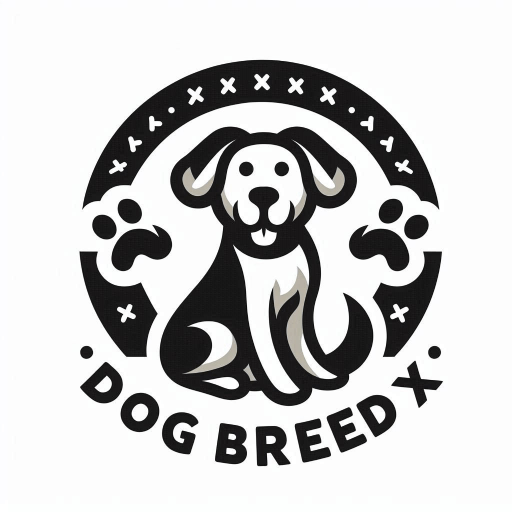Table of Contents
Shetland Sheepdog Breed
The Shetland Sheepdog, affectionately known as the Sheltie, is a small yet energetic breed that has captured the hearts of dog lovers worldwide. Renowned for their intelligence, agility, and affectionate nature, Shelties are more than just pretty faces. Their unique characteristics make them a popular choice among various dog owners, from families to singles, and even those interested in dog sports. In this article, we’ll delve into everything you need to know about this charming breed.
History and Origin
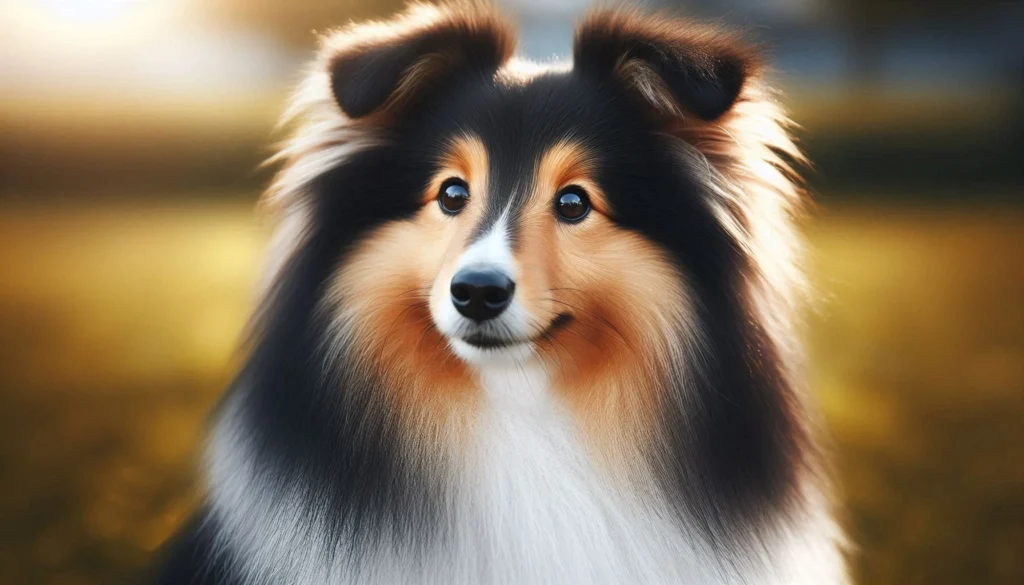
The Shetland Sheepdog hails from the rugged Shetland Islands of Scotland, a region known for its harsh weather and challenging terrain. Originally bred to herd sheep and protect farmland, the Sheltie is a product of selective breeding that combined the traits of the Rough Collie and smaller local herding dogs.
One interesting historical fact is that the breed was initially known as the “Shetland Collie.” However, this name sparked controversy among Collie breeders, leading to the adoption of the name “Shetland Sheepdog” to avoid confusion. Despite their relatively short history as a recognized breed, Shelties have quickly gained popularity due to their versatility and charming demeanor.
Physical Characteristics
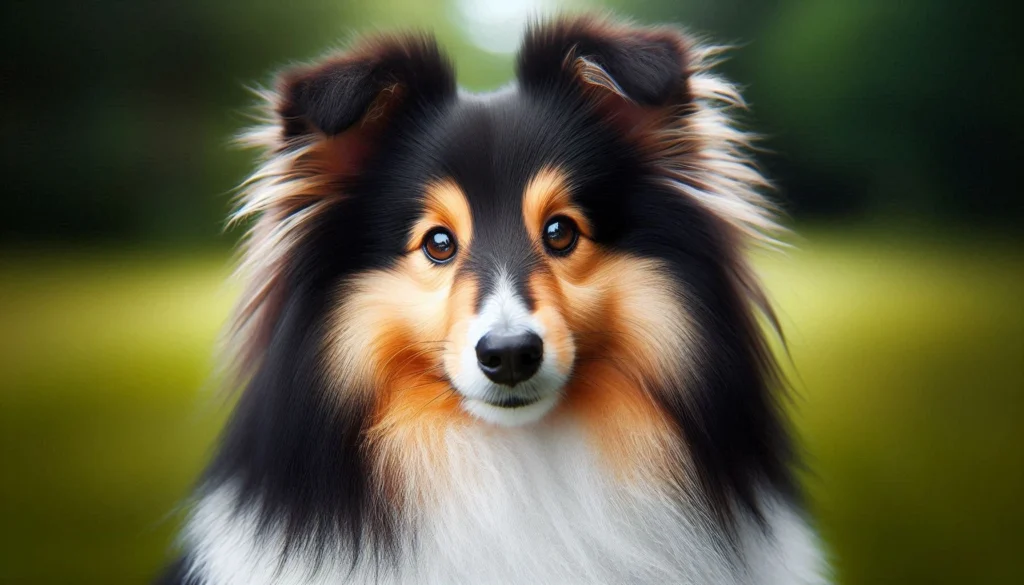
Shelties are a small to medium-sized breed, typically weighing between 15 to 25 pounds and standing about 13 to 16 inches tall at the shoulder. Their compact size is part of their appeal, making them suitable for various living environments, from apartments to larger homes.
One of the most striking features of the Sheltie is its double coat. The outer coat is long and harsh to the touch, providing protection against the elements, while the undercoat is soft and dense. Shelties come in a variety of colors, including sable, black, and blue merle, often with white markings that add to their picturesque appearance.
Their expressive eyes, usually dark and almond-shaped, convey intelligence and alertness. Shelties also have a well-defined muzzle and a distinct “mane” of fur around their necks, giving them a majestic appearance that is hard to overlook.
Temperament and Personality
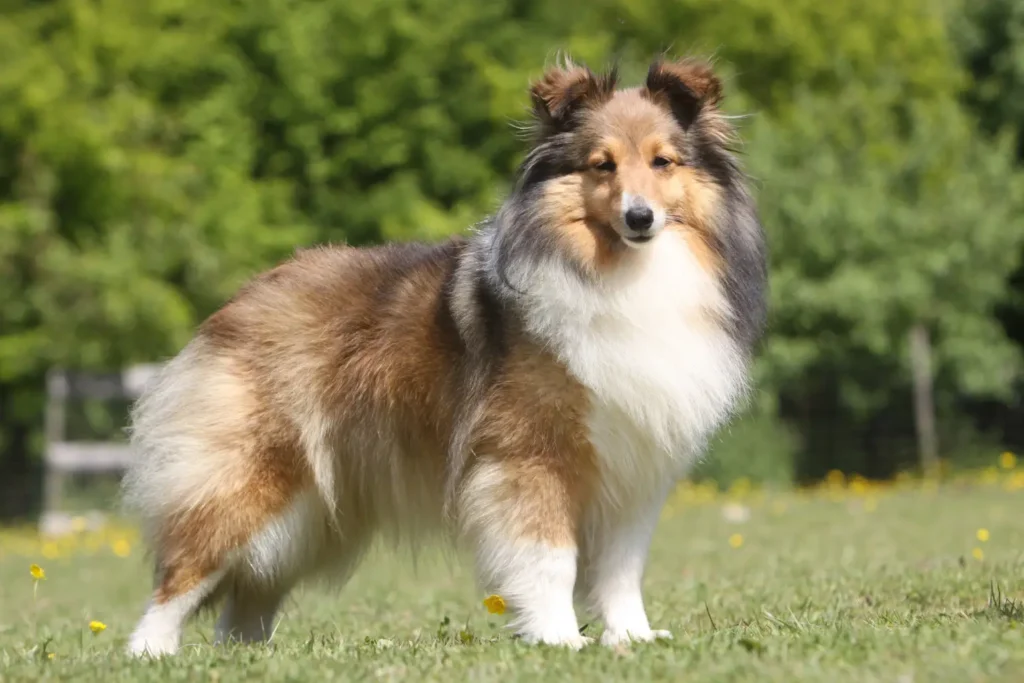
Shelties are known for their friendly and affectionate nature. They form strong bonds with their families and are particularly good with children, making them excellent family pets. Their intelligence is one of their standout traits, often ranking among the top in canine IQ tests. This makes them highly trainable, although their keen intelligence means they can sometimes outsmart their owners!
Shelties are generally good with other animals, including cats and other dogs. However, their herding instincts can sometimes lead to them trying to “herd” smaller animals or even children. Early socialization and training can help mitigate this behavior.
Health and Lifespan
Shetland Sheepdogs are generally healthy, with a lifespan ranging from 12 to 14 years. However, like all breeds, they are prone to certain health issues. Common conditions include hip dysplasia, thyroid problems, and eye diseases such as progressive retinal atrophy (PRA) and Collie eye anomaly (CEA).
Regular veterinary check-ups and a balanced diet are crucial for maintaining your Sheltie’s health. Keeping your dog at a healthy weight through proper diet and exercise can also help prevent many health issues.
Care and Grooming

Caring for a Sheltie requires a commitment to regular grooming, given their double coat. Weekly brushing is essential to prevent matting and reduce shedding. During the shedding season, more frequent brushing may be necessary.
Exercise is another important aspect of Sheltie care. These dogs are active and require daily physical activity to stay healthy and happy. Activities like walking, running, and even agility training can be great ways to meet their exercise needs.
Dietary needs for Shelties are straightforward but should be tailored to their age, weight, and activity level. High-quality commercial dog food or a well-balanced homemade diet can meet their nutritional requirements. Always consult your veterinarian for specific dietary recommendations.
Training and Socialization
Training a Sheltie is generally a rewarding experience due to their high intelligence and eagerness to please. Positive reinforcement techniques work best, as Shelties are sensitive and can become easily discouraged by harsh training methods.
Early socialization is crucial for this breed. Exposing your Sheltie to various environments, people, and other animals can help them grow into well-rounded adults. Training classes, dog sports, and regular playdates can provide excellent socialization opportunities.
Suitability as a Family Pet
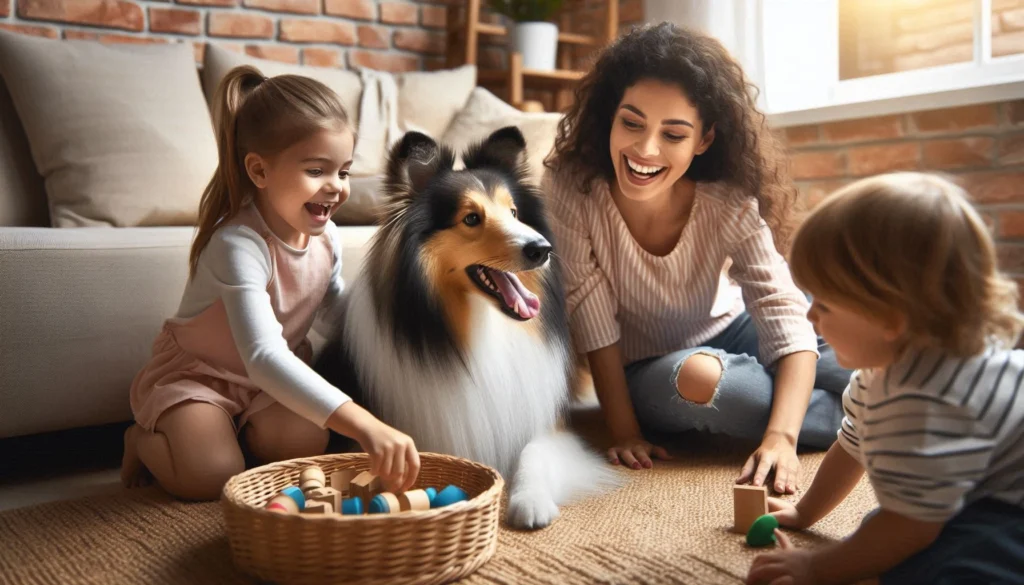
Shelties are remarkably versatile and adapt well to different living environments. Their size makes them suitable for apartment living, provided they get enough exercise. They are also great for families with children, thanks to their gentle and playful nature. However, their high energy levels mean they are best suited to active families who can meet their exercise needs.
Fun Facts and Trivia
- Miniature Collies: Due to their striking resemblance to Rough Collies, Shelties are often referred to as “Miniature Collies,” although they are a distinct breed.
- Sheltie Smile: Shelties are known to “smile,” lifting their lips to show their teeth in a friendly, non-threatening manner.
- Star Performers: Shelties excel in dog sports like agility, obedience, and herding, often outperforming other breeds due to their intelligence and agility.
Dog Breeds Similar to Shetland Sheepdog
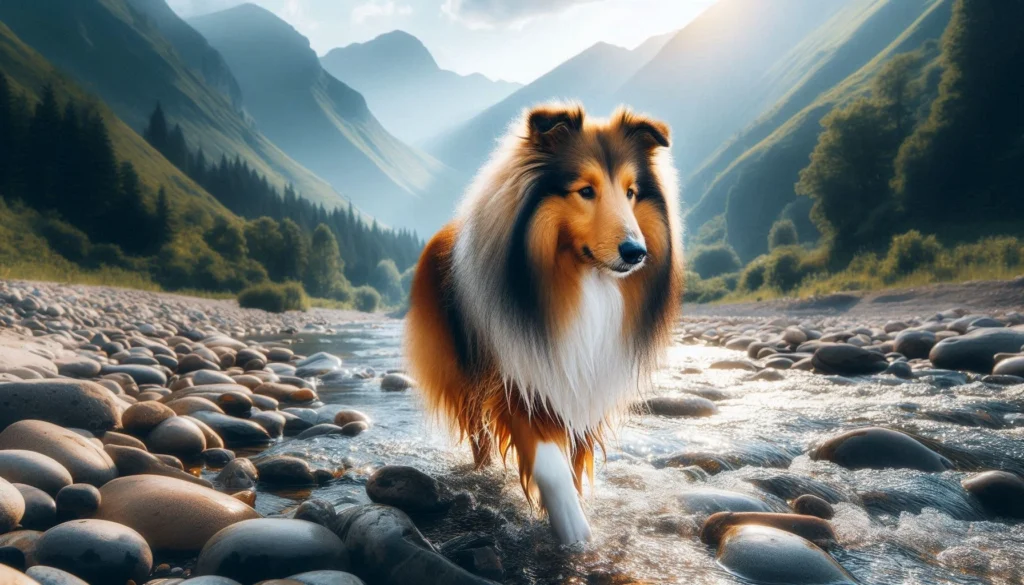
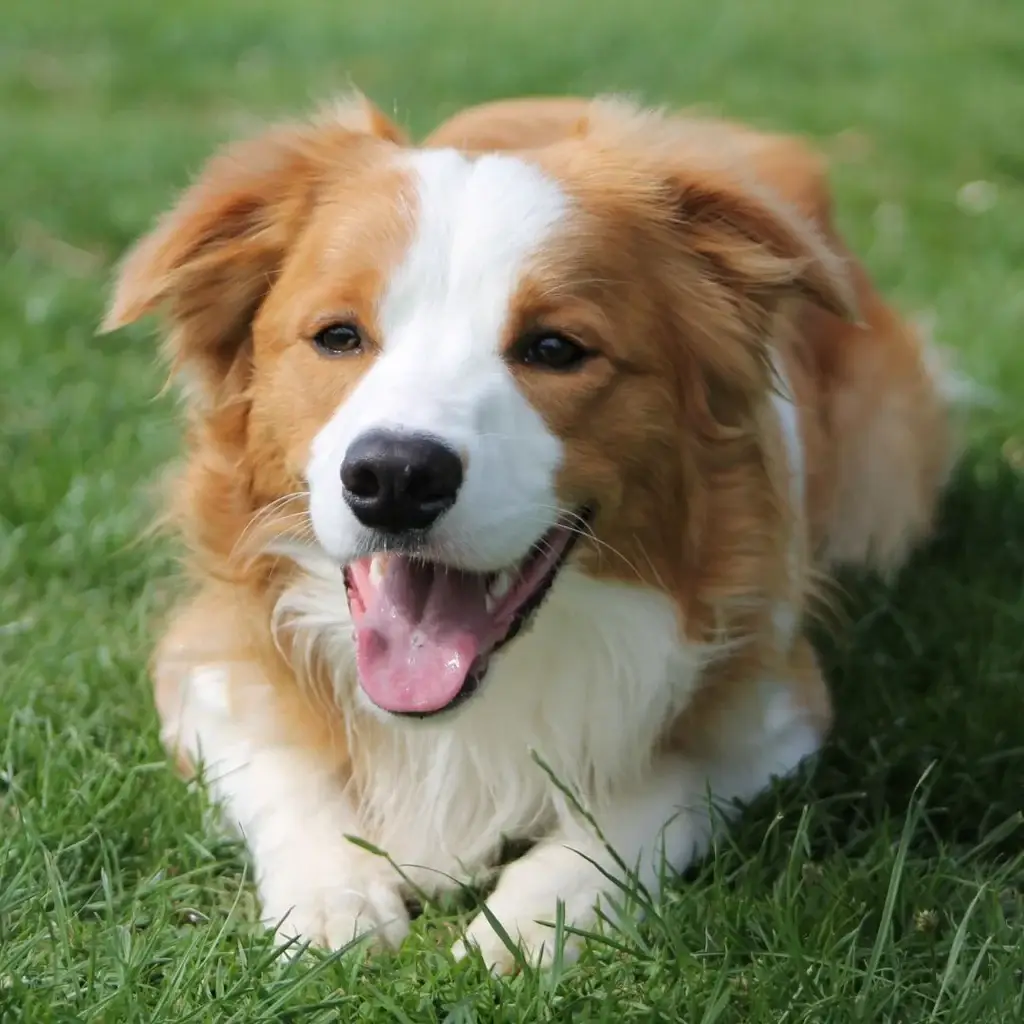
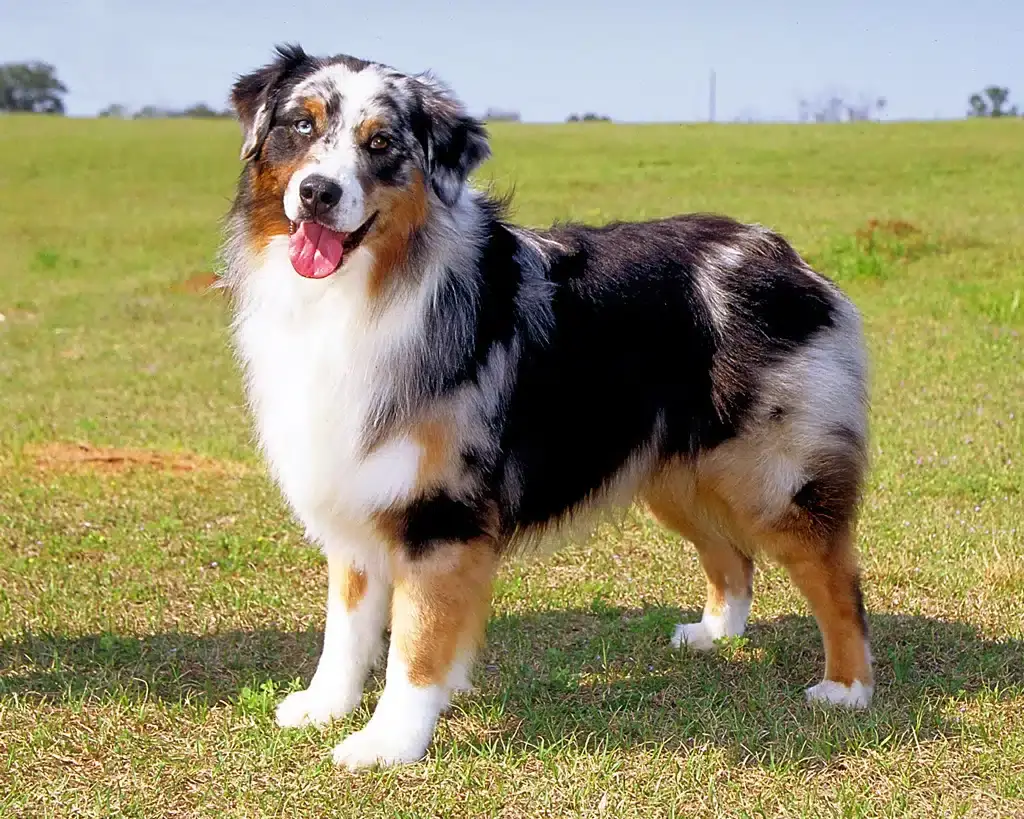
- Rough Collie: Larger than the Sheltie, the Rough Collie shares similar herding instincts and intelligence. They are also known for their long, flowing coats and gentle nature.
- Border Collie: Known for their exceptional intelligence and herding abilities, Border Collies are similar in temperament and activity levels to Shelties, although they require even more mental and physical stimulation.
- Australian Shepherd: Another herding breed, the Australian Shepherd is similar in size and temperament to the Sheltie. They are highly trainable and excel in dog sports.
Conclusion
The Shetland Sheepdog is a delightful breed that offers a wonderful blend of intelligence, affection, and agility. Whether you’re looking for a family pet, a companion for dog sports, or simply a loving friend, the Sheltie could be the perfect choice. For those interested in this breed, we encourage you to explore further, meet Sheltie owners, and experience the joy this breed can bring into your life.
FAQ
Is the Shetland Sheepdog a dangerous dog?
No, Shetland Sheepdogs are not considered dangerous. They are friendly, affectionate, and generally good with children and other animals. Like any dog, proper training and socialization are essential to ensure they are well-behaved.
Is the Shetland Sheepdog the best guard dog to protect you or your family?
While Shelties are alert and will bark to alert you of strangers, they are not typically known for their guarding abilities. They are more likely to be protective in a non-aggressive way and are better suited for companionship rather than guarding.
